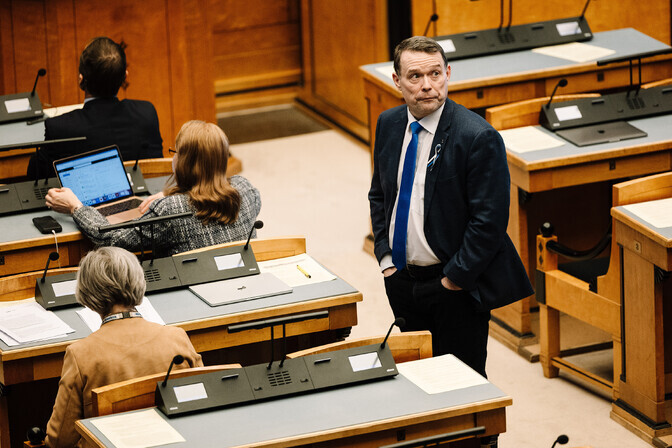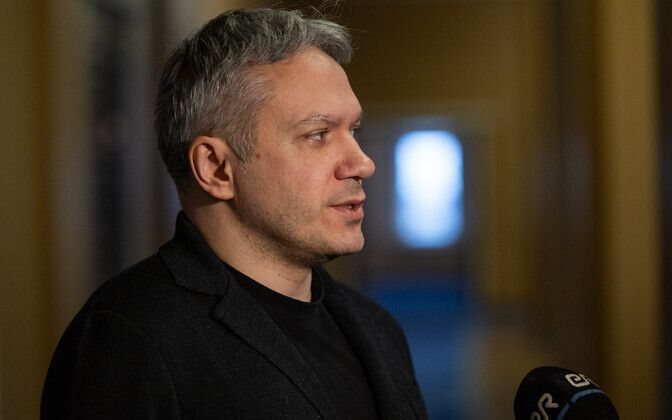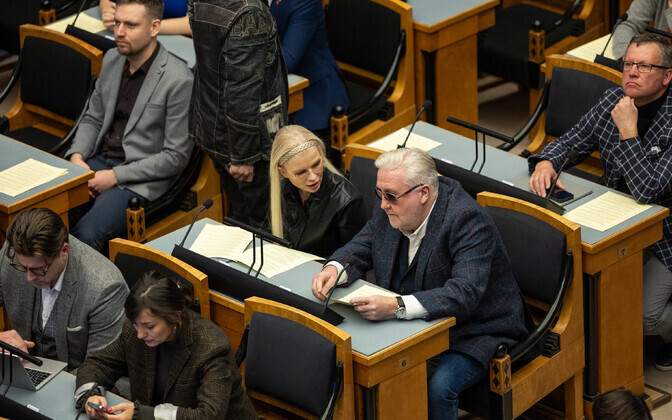A group of Reform Party and Eesti 200 MPs have drafted a bill to cut the gambling tax in Estonia, stating this will boost revenues.
Opposition MPs remain skeptical about this, however.
The substantive provisions of the national Gambling Act have not been amended for more than 15 years. According to one of the drafters of the new bill, Reform Party MP and chair of the Legal Affairs Committee Madis Timpson, one of the bill’s goals is to make Estonia more attractive to remote, ie. online gambling companies operating for players outside the country.
Gambling tax revenues could be boosted despite a cut in the rate, proponents of the bill say, and the money could be used to provide more funding for sports and culture.
“We have been talking here about this famous large [sports] hall that could be built, but all the time it’s as if we deliberate and deliberate. In fact, I signed on to this initiative primarily as a member of the support group for elite sports and coaches. Every cent we manage to obtain to fund this large hall is, in my opinion, a welcome deed for athletes and cultural figures,” Timpson said.
 Madis Timpson. Source: Ken Mürk/ERR
Madis Timpson. Source: Ken Mürk/ERR
Timpson added he could not predict how much tax revenue could increase with the bill if it passes. As recently as last year, however, the government had been planning to hike the tax on remote gambling, increments of 5 percent to 6 percent. The rate was set to rise to 7 percent next year. According to the new bill, however, the tax rate could now fall by 0.5 percent increments annually, and to 4 percent by 2029. This would result in Estonia becoming a remote gambling “paradise,” Timpson said.
“A remote gambling paradise is indeed what we could become. The idea would be that those foreign firms which are currently operating somewhere with their place of business officially registered in, for instance, Malta, would come to Estonia. Those people who are playing somewhere, I don’t know, in France, in Spain, their profits would come to us,” Timpson continued.
The Riigikogu’s Finance Committee has been designated the bill’s lead committee. According to the committee’s deputy chair, Center Party MP Andrei Korobeinik, however, the bill would lead to lost revenues and not gains.
“The initiators of the bill believed the lobbyists, who promised that if this tax rate is lowered, then immediately casinos and remote gambling service providers will come here. The reality is that no analysis has been carried out and the experience of other countries shows that such a small percentage drop does not affect the market much. For them, a stable economy and that certainty are much more important,” Korobeinik said.
 Andrei Korobeinik (Center). Source: Siim Lõvi /ERR
Andrei Korobeinik (Center). Source: Siim Lõvi /ERR
The bill states that once enshrined into law it would help fulfill the task of the Cultural Endowment Fund (Kultuurikapital) of bringing private money into culture and sports, to build and renovate sports facilities. On the positive side, Korobeinik said, debating the bill could at least potentially spark a discussion on the funding of sports and culture, which he says is currently not transparent enough.
“Up to 2017 we had the gambling council, which one could love or hate, but at least there the decision-making process was transparent. There were experts who made proposals. Right now, nothing like that exists. If the government wants to support some major event, they just make the decision to. The Riigikogu cannot influence it. They don’t ask an expert’s opinion, so why some other major event is left without support, no one knows,” Korobeinik went on.
The amendment to the Gambling Tax Act was initiated by the following members of parliament: Timo Suslov, Anti Haugas, Kristo Enn Vaga, Madis Timpson, Jüri Jaanson, Kristina Šmigun-Vähi (all from the Reform Party), plus the bulk of Eesti 200’s MPs: Tanel Tein, Diana Ingerainen, Stig Rästa, Tarmo Tamm, Kadri Tali, Kalev Stoicescu, Marek Reinaas, Ando Kiviberg, Peeter Tali and Toomas Uibo.
—
